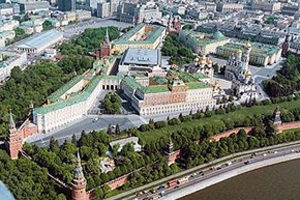Navalny’s Supporters have Tripled since 2013 but his Opponents Still Consolidated Behind Putin, Levada’s Denis Volkov Says

(Paul Goble – Window On Eurasia – Staunton, Jan. 25, 2021)
Polls show that the share of the Russian population supporting Aleksey Navalny has risen from six percent in 2013 to more than 20 percent now, but at the same time, they indicate that those who oppose him and support Putin amount to about half of the population and have consolidated around him, Denis Volkov says.
The Levada Center sociologist thus concludes that while “dissatisfaction with the authorities is growing,” no one should expect that to translate quickly into a further decline in the rating of Vladimir Putin (forbes.ru/obshchestvo/419351-obnovlenie-protesta-pochemu-lyudi-snova-vyshli-na-ulicy).
Navalny enjoys particular popularity among the young who formed a large share of those taking part in Saturday’s demonstrations, while Putin largely retains his hold on older Russians who view Navalny as an agent of the West directed not only against the Kremlin leader but against their country as well, Volkov continues.
One of the reasons that Navalny’s support is not greater than that is that many of those who took part in the protests were doing so less to show their support of the opposition leader than to indicate their unhappiness and even anger with the bureaucracy and their deteriorating standard of living.
Again and again, the sociologist says, people in focus groups his center organizes say “the powers don’t listen to people.” Going into the streets is thus one way they hope to change that, but that isn’t equivalent to backing Navalny as an individual politician. Many also wanted to show that they are no longer afraid of the increasingly repressive Russian state.
But “in parallel with the growth of the number of supporters of Navalny” or at least that of those prepared to march in protests his organization puts together, “the number of his opponents, which today amounts to about half the population of the country (primarily older people), has also increased.
These people may watch Navalny’s films about corruption, but they do so out of curiosity rather than because they agree with his interpretation of what official malfeasance of this kind means for the country, Volkov says.
“In favor of Navalny, in the eyes of his supporters and even part of his opponents may be playing his decision to return to Russia. This is viewed as confirmation of his bravery and the correctness of his own position,” the sociologist says. But it hasn’t shaken his opponents who continue to view Navalny as a weapon the West is using against Russia.
According to the Levada Center expert, “the harsh detentions and routine denigration of the protesters as working for the interests of the hostile West says that the powers that be have nothing to offer those who disagree with its policies.” That is only adding to the number of those who are angry at the regime and consolidating the opposition as well.
As a result, the opposition is no longer something marginal; but Putin can still count on his base at least for the time being, although an escalation of protests and repression against them may change that, peeling away some of Putin’s supporters and adding to the ranks of his opponents.
[article also appeared at windowoneurasia2.blogspot.com/2021/01/navalnys-supporters-have-tripled-since.html]
